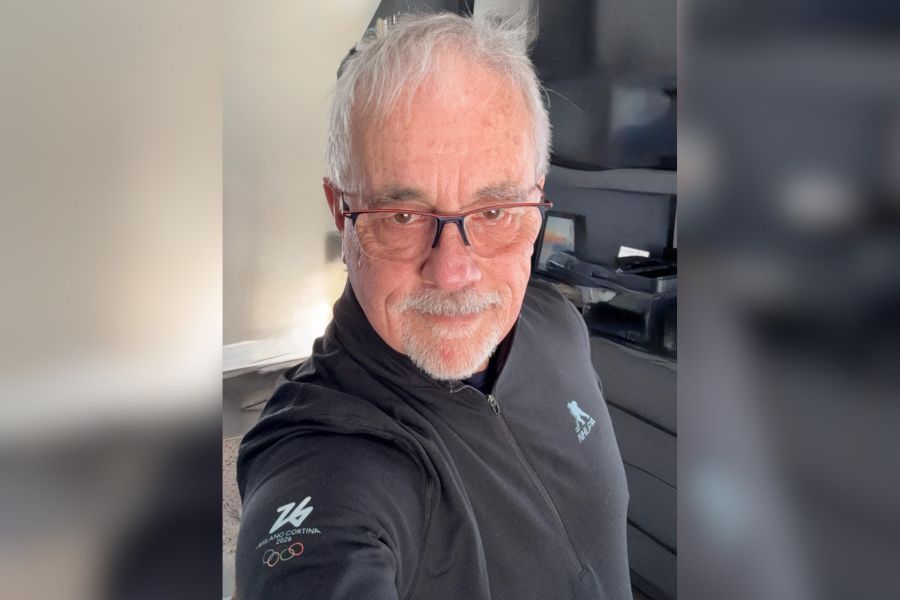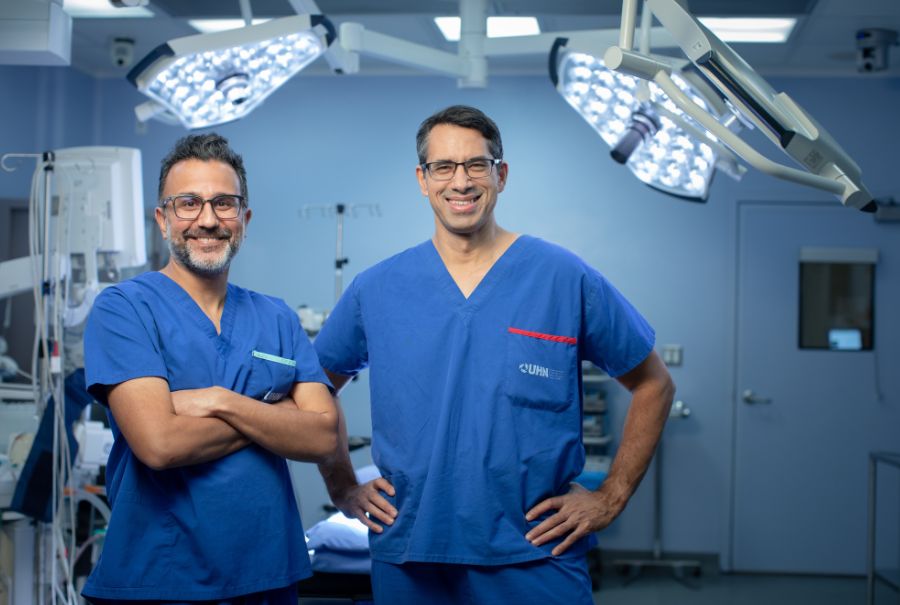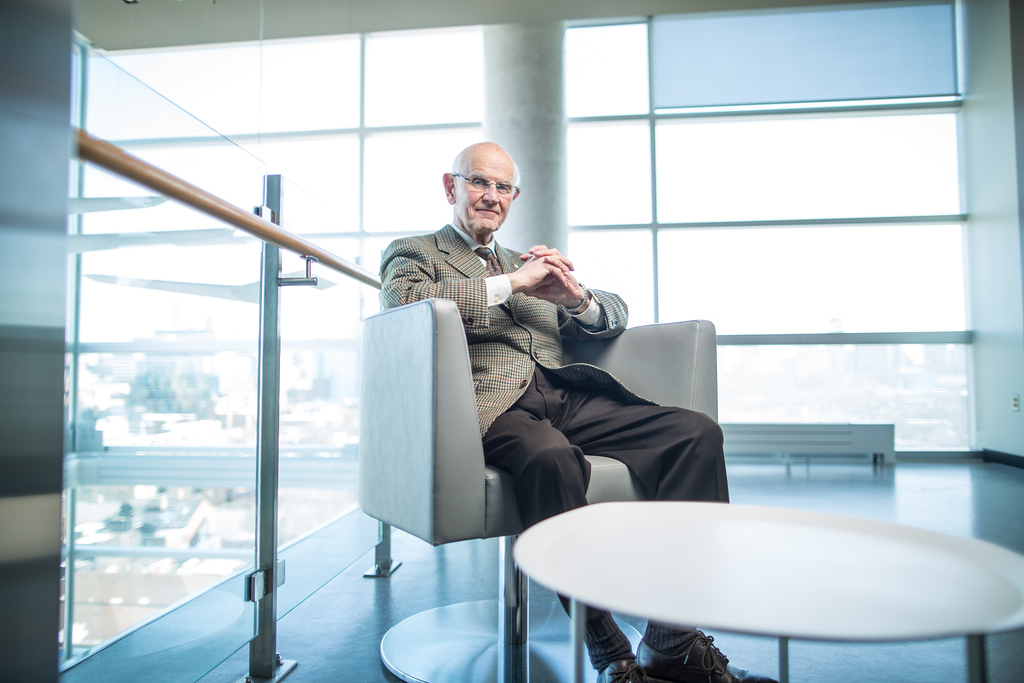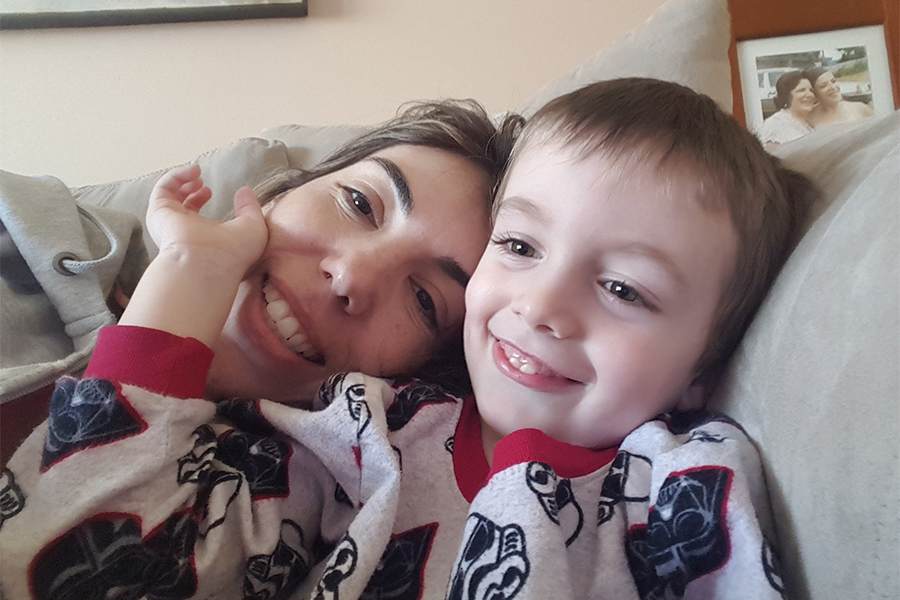
At age five, Sandy Penas was sound asleep in her bed when she was jolted awake by what she describes as “something happening in her mind.” Strobe lights filled her vision, morphing into vibrant colours.
Panic set in. She screamed out for her father.
The next thing Sandy knew, she was awake in the hospital, being treated for a seizure.
“It was very scary,” Sandy says of the incident 47 years ago. “I didn’t know what was happening.
“Even though I was only five, I still remember it clearly.”
That night marked the beginning of Sandy’s journey with epilepsy. What she experienced is known as an aura — the first stage of an epileptic seizure. They generally cause dizziness, confusion or audio-visual hallucinations before the seizure spreads to other areas of the brain.
But it wasn’t until years later, when Sandy thought about starting a family, that she experienced an even bigger revelation. A neurologist informed her it wasn’t safe for someone with epilepsy to have children.
“I lived my whole life thinking that having a child and being a mom was not something that would be possible for me,” she reflects.
That changed when Sandy was referred to UHN’s Women’s Epilepsy Clinic. Thanks to her care team, she was able to successfully give birth to a healthy baby boy.
Today, Sandy, 52, cherishes the bond she shares with her 10-year-old son — a relationship that has transformed her forever.
“I look at things in a whole new way that I never thought of before.”
Watch Sandy Penas explain how UHN’s Women’s Epilepsy Clinic has taught her “having epilepsy is not going to stop you from doing anything in your life that you want to do.” (Video: UHN)
Dr. Esther Bui, Sandy’s neurologist and a women’s epilepsy specialist at UHN, says Sandy’s not alone.
“A lot of women have been told historically, and even to this day, that it would be impossible, irresponsible, or even dangerous to have children,” says Dr. Bui. “And, that is simply not the case for most women.”
Up to 70 per cent of people with epilepsy can achieve seizure freedom with the right medication. For those who don’t, there are advanced surgical and non-surgical interventions that can further improve seizure control, she says.
The vast majority of women with epilepsy can have a safe and healthy pregnancy.
“Unfortunately, too many women aren’t told this unless they seek the data or have someone who is willing or able to help guide them through informed pregnancy planning,” says Dr. Bui.
What makes UHN’s epilepsy program unique are the multidisciplinary teams that make up the clinic — including experts in complex epilepsy, autoimmune epilepsy, genetics, traumatic injuries and women’s health.
UHN has been working hard to make women’s health a top priority. The goal is to focus on the unique needs women may have throughout their life, including women with epilepsy.
But the first step is getting the right diagnosis, Dr. Bui says.
Many people aren’t aware of the various symptoms a seizure can cause. It’s not uncommon for women to go years, even decades, without getting properly diagnosed.
“Seizures can manifest as anxiety, dread, fear, sometimes even a sense that death is looming,” says Dr. Bui. “These can be very bizarre symptoms.
“And unless you recognize that these could be seizures, many patients may get diagnosed with anxiety or panic disorder.”
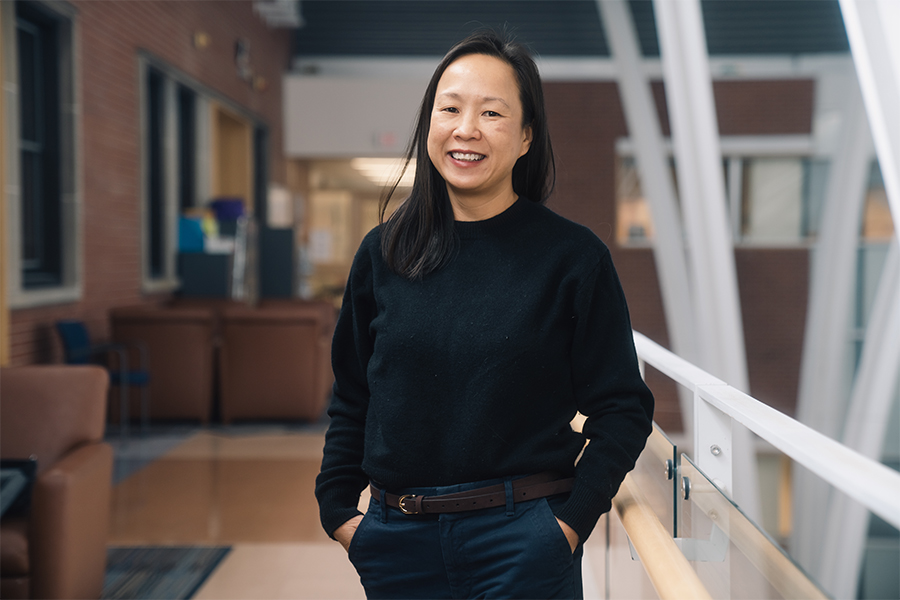
Sandy was a unique case. While she was diagnosed at a young age, her symptoms were very specific to her condition. With visual auras that caused flashing lights, colourful hues, and ultimately convulsive seizures, she caught it early.
But what looks like a seizure for Sandy may be different for others.
For Sophie Foxcroft, her symptoms weren’t quite as obvious.
The first time Sophie had a partial seizure — similar to Sandy’s auras — she experienced a head rush, a flashback memory, and a feeling of briefly losing consciousness.
This happened to her multiple times a day over the course of a year before she realized what was going on.
Only after she had a convulsive seizure while in the car with her husband was she rushed to the hospital, where she was eventually diagnosed with epilepsy by Dr. Bui.
“I didn’t know it was possible to get epilepsy at 41 years old,” says Sophie, Senior Director of Medical Imaging at UHN. “It was a scary time for me and my family.”
Despite having very different experiences, UHN’s Women’s Epilepsy Clinic supported Sophie and Sandy through their own unique challenges.
For Sophie, the focus was on her job.
As a woman and longtime leader in her career, it was important that her diagnosis didn’t affect her professionally. To do that, she and Dr. Bui had to find the right balance between treating her condition and managing the side effects of her medication.
Dr. Bui reassured her that they would find a solution. After all, she sees women with conditions similar to Sophie every week.
“I instantly knew that it was going to be okay,” says Sophie. “To have an expert in epilepsy and an expert in women’s health — it was a total game-changer.”
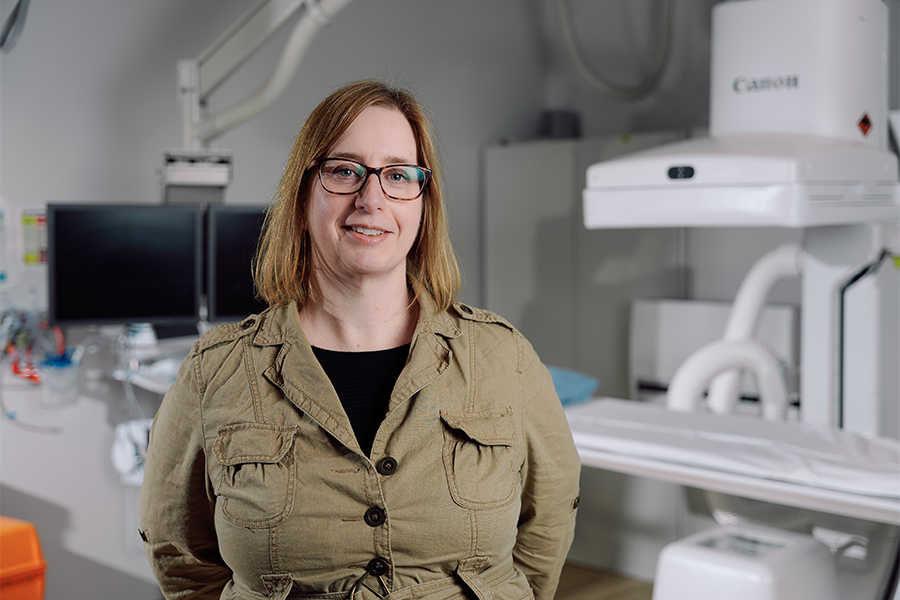
Sophie continues to be a leader at UHN. Her care regimen is so effective that she’s been seizure-free for years and no longer experiences side effects from the medication.
“I feel so fortunate to have her as my doctor,” Sophie says. “I have a hard time imagining that I could have gotten that kind of care anywhere else.”
For Sandy, the focus was on overcoming fears of having a baby.
Her biggest concern was her medication harming her child. Or, the possibility of her son getting epilepsy as well.
“I’m sure every mom lives with a little bit of fear while they’re pregnant, but especially so when you’ve been on different medications your whole life,” Sandy says.
Dr. Bui gave her a new prescription when she first arrived at the Women’s epilepsy clinic more than 11 years ago — one considered among the safest for pregnant women with manageable side-effects.
While those fears crept in sometimes, Sandy says they would have been constant if not for Dr. Bui.
“I would hear her voice in my head saying: ‘It’s okay. It’s going to be fine. The medication is not going to affect the baby,'” Sandy says.
Not only was her pregnancy completely safe, but Sandy hasn’t had an aura — or a seizure — since.
“The medication she gave me completely changed my life,” Sandy says.
Sandy’s son just turned 10 and does not have epilepsy. She describes him as “such a little individual” who loves to make his own choices.
“What I love most about being a mother is watching this little human grow up — from being a baby to suddenly wanting to make his own decisions,” she says.
“I can’t wait to see where this goes, because he’s such a free thinker. And I love that about him.”
Sandy, Sophie and Dr. Bui want other women to know that as scary as an epilepsy diagnosis may be, it’s not something beyond treatment. At a world-leading epilepsy clinic such as UHN’s, women’s needs are heard and seen.
“My biggest takeaway is that having epilepsy is not going to stop you from doing anything in your life that you want to do. It really isn’t,” Sandy says. “That’s something this clinic has taught me.”
By Shauna Mazenes

No one ever changed the world on their own but when the bright minds at UHN work together with donors we can redefine the world of health care together.
